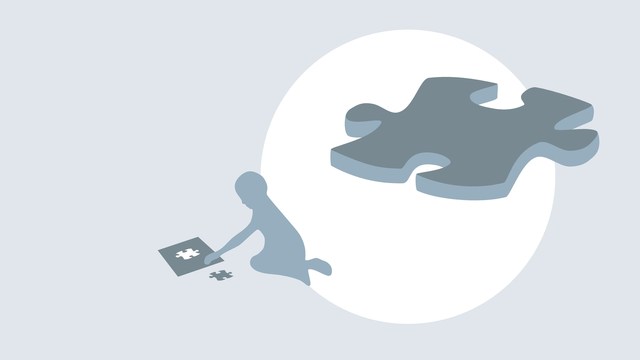California Institute of Technology researchers have uncovered the area of the brain responsible for perception of personal space.
The findings, to be reported August 30 in the journal Neuroscience, examine the brain’s amygdala, known to regulate fear and negative emotions, two critical elements of social interaction. NARSAD Distinguished Investigator Ralph Adolphs, Ph.D., Bren Professor of Psychology and Neuroscience and professor of biology, led the study.
Along with co-author Daniel P. Kennedy, professor of biology and postdoctoral scholar at CalTech, the team was able to make this link with the help of a unique patient, a 42-year-old woman known as SM, who has extensive damage to the amygdala on both sides of her brain.
The amygdala – a pair of almond-shaped regions located in the center of the brain – was previously known to process strong negative emotions, such as anger and fear, and is considered the seat of emotion in the brain. However, it had never been linked rigorously to real-life human social interaction.
The researchers focused on a specific test subject, SM, "because she was one of only a handful of individuals in the world with such a clear bilateral lesion of the amygdala, which gives us an opportunity to study the role of the amygdala in humans," according to Kennedy.
SM has difficulty recognizing fear in the faces of others, and in judging the trustworthiness of someone, two consequences of amygdala lesions that Adolphs and colleagues published in prior studies.
Previous studies of humans had not before revealed an association between the amygdala and personal space. From their knowledge of the literature, however, the researchers knew that monkeys with amygdala lesions preferred to stay in closer proximity to other monkeys and humans than did healthy monkeys.
Intrigued by SM's unusual social behavior, Adolphs, Kennedy, and their colleagues devised a simple experiment to quantify and compare her sense of personal space with that of healthy volunteers.
The experiment used what is known as the stop-distance technique. Briefly, the subject (SM or one of 20 other volunteers, representing a cross-section of ages, ethnicities, educations, and genders) stands a predetermined distance from an experimenter, then walks toward the experimenter and stops at the point where they feel most comfortable. The chin-to-chin distance between the subject and the experimenter is determined with a digital laser measurer.
Patient SM, a woman with complete bilateral amygdala lesions (red), preferred to stand close to the experimenter (black). On average, control participants (blue) preferred to stand nearly twice as far away from the same experimenter.
Among the 20 other subjects, the average preferred distance was .64 meters—roughly two feet. SM's preferred distance was just .34 meters, or about one foot. Unlike other subjects, who reported feelings of discomfort when the experimenter went closer than their preferred distance, there was no point at which SM became uncomfortable; even nose-to-nose, she was at ease. Furthermore, her preferred distance didn't change based on who the experimenter was and how well she knew them.
"Respecting someone's space is a critical aspect of human social interaction, and something we do automatically and effortlessly," Kennedy says. "These findings suggest that the amygdala, because it is necessary for the strong feelings of discomfort that help to repel people from one another, plays a central role in this process. They also help to expand our understanding of the role of the amygdala in real-world social interactions."
Adolphs and colleagues then used a functional magnetic resonance imaging (fMRI) scanner to examine the activation of the amygdala in a separate group of healthy subjects who were told when an experimenter was either in close proximity or far away from them. When in the fMRI scanner, subjects could not see, feel, or hear the experimenter; nevertheless, their amygdalae lit up when they believed the experimenter to be close by. No activity was detected when subjects thought the experimenter was on the other side of the room.
The researchers believe that interpersonal distance is not something we consciously think about, although, unlike SM, we become acutely aware when our space is violated. Kennedy recounts his own experience with having his personal space violated during a wedding: "I felt really uncomfortable, and almost fell over a chair while backing up to get some space.”
The findings may have relevance to studies of autism, a complex neurodevelopmental disorder that affects an individual's ability to interact socially and communicate with others. "We are really interested in looking at personal space in people with autism, especially given findings of amygdala dysfunction in autism. We know that some people with autism do have problems with personal space and have to be taught what it is and why it’s important," Kennedy says.
He also adds a word of caution: "It's clear that amygdala dysfunction cannot account for all the social impairments in autism, but likely contributes to some of them and is definitely something that needs to be studied further."
Other coauthors of the paper, "Personal Space Regulation by the Human Amygdala," are postdoctoral scholar Jan Gläscher and J. Michael Tyszka, the associate director of the Caltech Brain Imaging Center and director of Magnetic Resonance Physics.






Add a CommentComments
There are no comments yet. Be the first one and get the conversation started!